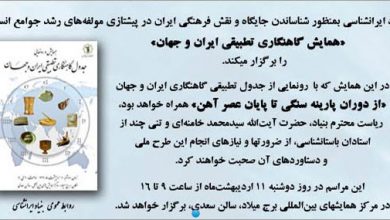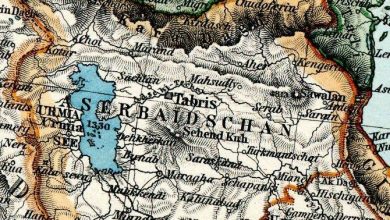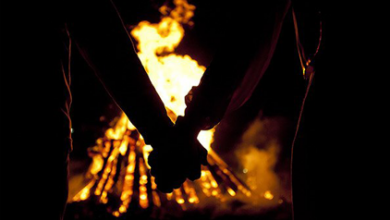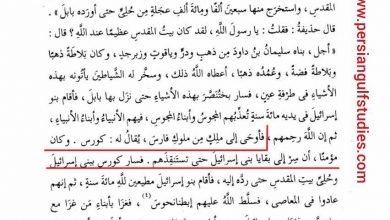History of Shiite Islam in Iran – Part 3(Unsaid things from Qadisiyah)
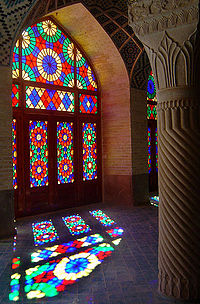 ۷۸۶
۷۸۶
About Qadsiyeh and its geographical location and its generalities, previous and later authors have written many times. I am giving some points from these works in a condensed form to the opinion of dear readers. I hope that as soon as possible you will be able to access other sources that I am trying to find and other points. I will explain and interpret in a citation form and in my own weak pen.
Commanders of the New Muslim Army :
“. Jarir bin Abdullah Bajli was one of the men of the Bijli tribe. He played an important and effective role in the conquests. He was in command of the army in the Qadisiyah and Hirah war (Yacoubi, ibid 2/ 120) He became the commander of the Muslim army in the battle of Nahavand after Numan bin Moqrin was killed. (Dinori, sleepless news, 135) In the battles of Jamal and Safin in the footsteps of Imam Ali (ع) He was present several times on behalf of the Imam (ع) He went to Muawiyah. His frequent meetings with Mu'awiyah and his lack of faith in following Imam Ali (ع) It caused Mu'awiyah to deceive him and finally separate him from Ali. Because of his betrayal, Imam Ali destroyed his house and set it on fire.[1]”
In the continuation of the same translation, a part of the book of penitents written by Abu Muhammad Abd Allah bin Ahmed bin Muhammad bin Qudama al-Maqdisi / Translation: I bring Mahmoud Mahdavi Damghani so that you can see what kind of people and with what intentions attacked the Iranians, and although many writers of the Sunni sect introduce them as legends, the judgment is up to you.:
” The wise and knowledgeable ruler Muhammad bin Muhammad bin Muhabeh Khorasani [2]He narrated to us from narrators who said so:
When the campaign became difficult in the Qadisiyah war in Iraq, Abu Mohajen Thaghafi [3] He was imprisoned in the command post. He went to Salmi, the daughter of Hafsa, who was the wife of Saad bin Abi Waqqas, and said: Can you do something good for me? he asked: What is the work until then? said: that you release me from the shackles and lend me the Balqa horse, and God's covenant is upon me that if my Lord is safe, I will return and put my own feet in the shackles, and if I am killed, maybe the people who escaped And, the woman said: What do I do with this work? Abu Muhjan recited these verses while he was walking in his chains.
«This sadness is enough that the horsemen are searching with spears and I am here tied and my feet are in chains, because I sing a song, the chain stops me and the doors are closed on me and no one hears my voice. arrive.
I had a lot of wealth and brothers, they left me alone and now I have no brother, my body has become weak from this grief and every morning I try to remove this expensive chain..
God's promise to me not to break it, if I get free from this bond, I will not go to the pub again.».
After that, Salmi told him: I asked God for good and I was satisfied with your promise and he released him from prison.
Abu Muhjan dragged the horse and when he went out of the area he got on it and at first he moved slowly and when he reached the side of Mimene the army he shouted Takbeer and attacked the left side of the enemy army and made a show between the two ranks with his spear and other weapons. Then he returned from behind the Muslims to the heart of the enemy's army and attacked the polytheists in advance of the Muslims, and he continued to show off with spears and weapons, and at night he struck them hard, and the people were surprised by him, and as during the day They had not seen him, they did not know him, some said: This man is one of the brave scouts of Hashem's friends or Hashem himself.
Others said: If Khizr (ع) He appears in the wars. We think that this rider who is riding the Balqa horse is Khizr.
Others said: I swear to God, if it is not that angels do not fight, we used to say that this is an angel who fights to make us stable. One of the things people did not remember was Abu Mohajin who died in his prison. takes.
Saad bin Abi Waqqas also said: I swear to God, if it wasn't about Abu Mohajen's prison, I would say this is Abu Mohajen and this horse is Balqa.
When the night reached the middle of the night, the two groups stopped each other and the Muslims returned, and Abu Muhjan returned to the camp from where he had gone out, took out his weapon, left his saddle, and bound his legs..
Abdul Razzaq says: Muammar narrates from Ayyub, from Ibn Sirin who said:
Abu Muhjan Thaqafi was always flogged because of his disobedience, and when he continued that way, he was imprisoned, and when the day of the Qadisiyah battle came and he saw that the polytheists were killing the Muslims, one of the maids, who was said to be the wife of Saad b. Abi Waqqas also sent a message that Abu Mohajin says: If you free him and leave this horse in his possession and give him his gun, if he is not killed he will be the first to return, and he recited the same poems.. He says:
That woman untied Abu Muhajn and gave him his weapon and mounted the horse that was in the house and made it gallop and presented itself to the polytheists and always attacked a man and killed him. and broke his back. Saad bin Abi Waqqas looked at him with surprise and said: Who is this rider?
He says: Nothing passed before God forced the enemy to flee and Abu Muhjan returned and put the weapon in its place and put his feet in chains, as it was..
Saad bin Abi Waqqas also came, his wife asked: How was your war today? He started narrating the news and said: What happened to us today and what hardships we went through until God raised a man on the horse of Ablaq. If it wasn't for the fact that we have put Abu Mohajin in chains, I would have said that this bravery is a sign of Abu Mohajin's characteristics. said: By God, he was Abu Mohajin who did such and such and narrated the story to Saad.
Saad bin Abi Waqqas called Abu Muhjan and opened his bonds and said: From now on, we will never whip you for eating.
Abu Mohajin said: I also swear to God that I will never drink from now on, even though I only refused to give it up because of your whipping..
And it has been said that Abu Muhjan told Saad bin Abi Waqqas: When you eat too much
I would flow and be cleansed of its sin, I would continue to eat, but now you have not helped me by removing the limit of it.- Miserable- I swear to God that I will never drink alcohol again.
What was looted from Iran?:
What was looted more than the materials and ancient works is their disappearance. Because the lack of culture and ignorance of the self-proclaimed invaders of Iran was and is not hidden from anyone. I will talk about the humanity of the invaders, but in the following, I will briefly mention some of the looting and the possible fate of Iranian works and creations in the hands of these invaders.:
۱)” It is said in Moruj al-Dahahab that Fereydun is the son of Esqian bin Jamshid, and in some of the histories, eight mediators between him and Jamshid have been proved, and Al-Awwal is al-Asah and according to the consensus of the imams, the history of Fereydun was a just king and a scholar of politics, a sultan with many spiritual virtues, and in During his time, the rules of men and people have accepted the provision that because the people of the world got relief from the tyranny of Zahhak and Feridun sat on the king's bed, on this day, which was the first of October, they celebrated Eid, and the festival, which was the Persians' Eid, is part of it, and Feridun of the classes of Hashm and the differences of the subjects. He pampered him with good appointments and good words, and he destroyed the basis of the oppression that had spread during the time of Dahhak, and the torn leather that Kave had put on the head of the spear on the way out, he put precious gems on it and made it known as Kavian's coat, and each of the sultans of Kiani who sat on the king's bed added some jewels to it until it reached such an extent that the locals were unable to value it, and in the conquest of Qadisiyah, that knowledge fell into the hands of the people of Islam and was divided between the emigrants and the Ansar.”[4]
۲)The amount of loot and jewels and… which fell into the hands of the attackers, it was so much that unlike many writers of secret work (They make up reasons for themselves) I declare that the simplicity of Iran, which was the richest country in the world at that time in terms of gold and jewels, has been looted. To prove the claim, from several books written by Iranian Sunni authors in the predominant Arabic language of that time, one that is And I chose the one whose numbers were more accurate and real:
” Saad bin Manazee came to Madinah, descended in Qasr Kasari, and first offered eight rak'ahs of prayer, beg salaam, and told them to collect the spoils. He reached Durham and sent some things inside the unbuilt part to the Caliphate, such as Qaqaa bin Amr in the conquest of Nahrwan, he saw that a large group of camels were surrounded. They had loaded it with Saad's servant, and when Saad told them to open the chest, they saw in that chest a garment woven from rolled pearls, each of which was the size of a bird's testicle, and they saw an earring studded with precious jewels and twenty ruby rings, the price of which the locals could not imagine. And they were aware of their weakness and incompetence, and some of them wore that garment and put those earrings in their ears, and put all ten rings on their fingers, and put on a crown and ten arms of a gold-woven garment, the like of which the beholder had never seen, and the Arabs found watery curves. It was full of camphor and they thought that it was not milk and eat like their food Pouring camphor in it became bitter, they knew it was not salt and exchanged it for salt.[5]
The self-proclaimed Arab emirs over Madain and other parts of Iran, the capital of Iran at that time, after the Qadisiyah war
In this part of the book Suluk al-Muluk, I am quoting a paragraph exactly so that I can read as much as possible into the system of our caliphs and their goal of invading Iran, which is the domination and humiliation of cultured Iranians by a primitive people. (that neither Islam had a positive impact on them, nor did Iranian culture dominate them) And the circulation of power, wealth, and lust among themselves should be clear to everyone.
All of these are an emphasis on the author's claim in the previous chapters that the attack of the newly called Muslims at the mercy of their cruel and heretical caliphs is illegitimate and inhumane. Throughout history, Sunni authors, from Iranians to Arabs, are proud of this rebel. Crying, tyrants, and calling Iranians infidels show their great distance from the principle of Islam and the Prophet's mission to the Imamate of the Shia imams. Those who are the best examples in the history of humanity for all people forever. hypocrite and … every knowledgeable and fair person will vote for the height of his humanity.
One important note:In the following, one of the author's goals is to express and prove the theory that the opening of the country by Umar and other self-proclaimed caliphs was based on lust for power and wealth along with physical lust.. Among the neighbors, in addition to having a deep grudge against the civilized and cultured people of Iran, and on the other hand, their rebellious nature to seize the achievements, trophies, and slaves from this country was provoked more than before by leaving Ali bin Abi Talib (a.s.) opened the way for the caliphate that God had announced through the Prophet (pbuh) to carry out this evil intention.. Their barbarism was such that they pushed Iran and Rome back thousands of years under the hoofs of their horses, and silenced humanity in their eyes..
“The second part of the army of Islam came to Iraq during the time of Umar, may God be pleased with him, and the first of them, during the time of Umar may God be pleased with him, was Saad Ibn Abi Waqqas, may God be pleased with him, who fought in Qadisiyah with Rostam Farrokhzad, who had already come to Yazdjard, and killed him. He killed and conquered Mada'in. And the Amir of Mada'in, who was in the place of Kasari, was previously Umar, may God be pleased with him, Saad bin Abi Waqqas, and Umar dismissed him in the end, and gave his place to Umar bin Yasir, and then he gave it to Mughira Ibn Shuba, and then to Abi Musa gave.
And you did not give anyone's life more than one year in Ghalib. And you said that when the Amir of your kingdom was safe from being deposed, he considered your kingdom as his own and found the possibility of obedience to you.. And he knew that it would cause corruption. And when Amir al-Mu'minin Umar, may God be pleased with him, was about to die, he bequeathed that any caliph who succeeds me should not dismiss the governors for a period of one year, lest he disobeys the caliph.. Another of Umar's commanders was Utbah bin Ghazwan, who went to Basra and conquered it and died there.. And Abu Musa Ash'ari, who was the emir of Basra before him. And Basra's army took Fars and Ahvaz, and the governors there were with the emir of Basra because they were in Basra's army.. And the governors of Iraq, Azerbaijan, Khorasan and Trans-Nahar were subordinate to the army of Kufa. And Amir al-Mu'minin Umar, may God be pleased with him, used to install his Darughgans, and the tributary of every country was the gift of the army of that country, if it is mentioned in the chapter of tributary, God willing.. And the Amir of Egypt at the time of Umar, may God be pleased with him, was Amr bin Al-Aas.
And as for the rulers of the time of Amir al-Mu'minin Uthman, may God be pleased with him; So, the emir of Kufa who sent troops to Khorasan, Iraq and Azerbaijan was Walid bin Uqbah.. And Uthman, may God be pleased with him, in most of the countries of Islam, appointed commanders from his own tribe, the Umayyads, and they were people of strength and courage.. And in Egypt, Umar bin Al-As was the first, and Uthman deposed him and made Abd Allah bin Saad bin Abi Sarh the amir, and then he deposed him and made Muhammad ibn Abi Bakr the amir.. And Syria was in the hands of Muawiyah, and Ahnaf bin Qays in Khorasan, and Abd al-Rahman in Azerbaijan, and Abd Allah bin Amer in Fars, and finally he came to Khorasan..[6]“
I will continue this article in the near future. If God wills. Thanks. Cultural leader
[1] Translated by Al-Akhbar Al-Mowfiqiyyat - Zubair Bin Bakkar– Asghar Qaidan– International Publishing Company–Tehran-1386-p.556
[2] This man is one of the writers and poets of the 6th century and passed away in Ramadan 576 Hijri is His origins are from Khorasan and a resident of Baghdad, and he has been the focus of the government's men. For more information, refer to the article of Mr. Abul Fazl Birjundi in the Islamic Encyclopedia, p. 407, vol. 3 refer to.
[3] Abu Mohajen is one of the poets and horsemen of the 7th century AD- Head of Islam- who has been fascinated by wine; Ibn Qutiba's poetry and poets, p 336 Chap Beirut, 1969 Please refer. The story of Abu Mohajin in the battle of Qadisiyah is mentioned in very ancient sources, sometimes in a brief form and sometimes with more preference than what Ibn Qudama gave. For example, in the translation of Akhbar Al-Twal Dinuri, p. 155, written by Mahmoud Mahdavi Damghani, Tehran, Ni publication. 1364 U and the songs, Abu Al-Faraj Isfahani, pages 13/ 1C 19, Egypt 1391 It was written by the interest of Abd al-Karim Ibrahim al-Gharabawi, the minister of vision, Muhammad Abu al-Fadl Ibrahim, and the end of the Lord Nouiri, p. 208, c. 19 and c 4 The translation of that book by this servant and the translation of Tabari's history, pages 1721/ 1722/ 1751 Refer to the pen of the late Abu al-Qasim Payandeh.
[4]It was an expression of the decoration of assemblies- Majed al-Din Mohammad Al-Husseini-Senai Library-Tehran-1362-p. 51
[5] The same - page 111
[6] The Behavior of Kings, Fadl bin Rozbahan, p: ۲۰۴
The address of the above article is on my personal blog:
http://url.parsiandej.ir/waRpF


